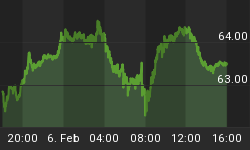
Angela Merkel told the German Bundestag last week that in the absence of a deal on the Eurozone debt crisis, "Nobody should take for granted another fifty years of peace and prosperity in Europe: if the euro fails, Europe fails".
Present situation
Prime Minister Papandreou may lose power by Friday, in which case no referendum will take place. If he gets the vote of confidence he wants there will be a Referendum in which so far the indications are that Greece will say no to the bailout by the E.U.
The deal has these key aspects:
- The recapitalization of the European banking system to the extent of €160 billion, to cope with the 50% writes down of Greece's debt.
- 50% write down of Greece's debt.
- The 'expansion (through leverage) of the bailout fund to €1.4 trillion to be supported partly by the E.U.'s Asian trading partners, which if it gets off the ground will do so at the expense of the dollar.
- The funding of the bailout fund by the European Central Bank.
If Greece says "No", then Greece will run out of money by mid-December and leave its bloated civil service without pay. If a 'No' then the country is bankrupt and will face a financial situation similar to when South Africa faced the sanctions of the outside world. A two-tier currency, import replacement policies, (which could produce a boom) being shut out of the financial markets for a decade or so, and the cheapest holidays in the world (buy your Drachmas just before your fly there).
Outside of Greece, expect the E.U. to save the banking system with far more than a trillion new euros and possible Exchange/Capital Controls inside the remaining debt-distressed P.I.I.S. Nations of the Eurozone (The Eurozone Treaty allows for this for short periods). The U.S. will feel the effects of this financial tsunami in their banking system and economy, and a global recession will be countered by more money creation. Mix this altogether in the same bowl, and you have a 2012 that will re-define the concept of financial storms.
If the vote is "Yes", then any major injection of E.C.B. money into the fund will be extremely controversial in Germany, and therefore should not be taken as read. Leverage of the bailout fund will be in reality the addition of more debt. When this 'solution' was announced, the markets welcomed it with open arms because they were desperate for any positive news. It was remarkable the dithering politicians could come up with such a deal [even though the details of this entire are still absent].
Expect the referendum in a volatile and uncertain months' time, in early December!
A Banking Crisis
The global banking system is like a web with banks across the world intertwined in sovereign debt holdings that are reflected on their Balance Sheets –each one regulation-bound to hold a certain percentage of underlying assets against that which they lend. As we now know, there's likely to be a reduction in these Balance Sheets in the next couple of years of around €2 trillion as they meet new capital requirements, making the availability of funds less than required for a healthy, growing Eurozone. That's where the recapitalization of the European banks comes in. Banks like Societe Generale are loaded with Greek debt. The holdings of Greek debt extends to the other side of the Atlantic to Wall Street and main street banks, to some extent.
In a referendum, the vote of the lowest common denominator rules the day. This, to the extent of 60% of the Greek people is against the bailout. If their opinion stands, then the words of Angela Merkel will come to life.
So until the end of the year the Eurozone, the global banking system, (and you could see a domino effect like never before) and the world's monetary system could come under such pressure that it may buckle in a far worse manner than it did in the 2007/2008 credit crunch.
Should the Greek referendum say 'No', then the contagion will spread like wildfire...
If No, Then What
Markets may well wait for the result before reacting, but many more prudent banks, investors, and sovereign wealth funds and the like will run for cover before then. They can't afford to be caught in the tsunami of capital flows that will follow.
As an example, the Greek central bank will have to institute a change of money from the euro back to the Drachma. Before then they will use their powers under the Eurozone regulations to impose Capital Controls while still in the euro. As they convert, these controls will persist as a two-tier Drachma is instituted, one for capital flows and one for trade flows. Capital leaving Greece will go out at a major discount to the 'Commercial' Drachma in a 'Financial' Drachma. Capital flowing into Greece will gain the benefit of this discount as a premium, an addition to their capital inside Greece. But Greece will be isolated financially, except by bargain hunters buying Greek assets at major discounts.
But the 'contagion' effect may well place similar pressures on the other PIIGS countries, which could, if pressured hard enough, follow Greece with Capital Controls, but while staying in the Euro.
If the euro itself fails, as Angela Merkel thinks may happen in this situation, then the resurrection of the Peseta, the Punt, the Lira and the Escudo will happen with similar restrictions on Capital movements.
Member's Only
If No, Then What (cont.)
Benefits to Gold, Silver
Get the rest of the report. Subscribe @ www.GoldForecaster.com and www.SilverForecaster.com















